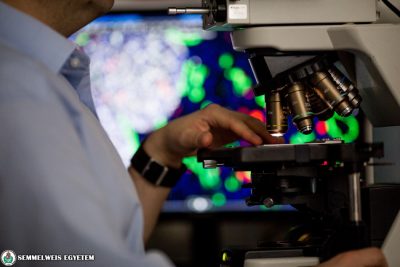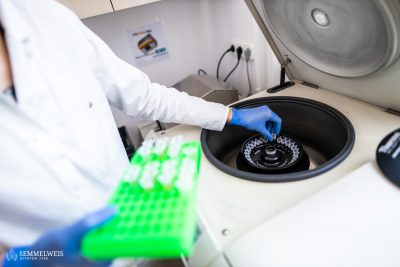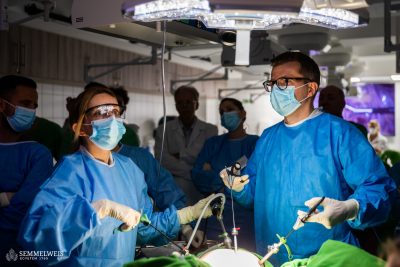The recently published international scientific publication may take another step towards the therapy of the difficult-to-treat rheumatoid arthritis causing inflammatory changes in the joints. The first author of the publication is Dr. György Nagy, Head of the Department of Rheumatology and Clinical Immunology at Semmelweis University. It is estimated that one-third of patients with rheumatoid arthritis do not respond adequately to the currently available therapeutic recommendations. The first step of the European joint project was to define who can be included in this group – a communication has recently been published in a leading international scientific journal of rheumatology. This was followed by the development of a new recommendation related to the treatment of the patients concerned.
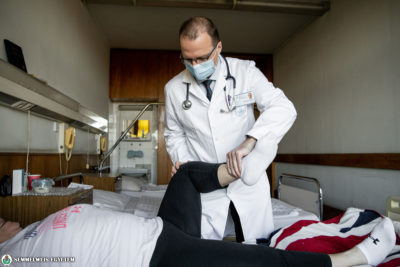 Rheumatoid arthritis (RA) is a systemic autoimmune disease associated with inflammatory changes in the joints. On average, it affects 0.3-0.6% of the population, which means that tens of thousands of people in Hungary suffer from this disease. The treatment of the disease has greatly improved in the last two to three decades, numerous new drugs, biological and targeted therapies have become available, and the work of physicians is supported by a constantly updated protocol at European level.
Rheumatoid arthritis (RA) is a systemic autoimmune disease associated with inflammatory changes in the joints. On average, it affects 0.3-0.6% of the population, which means that tens of thousands of people in Hungary suffer from this disease. The treatment of the disease has greatly improved in the last two to three decades, numerous new drugs, biological and targeted therapies have become available, and the work of physicians is supported by a constantly updated protocol at European level.
“However, experience has shown that approximately one third of the patients do not respond to the currently available therapies that aim at achieving a state close to asymptomatic. It is a very heterogeneous group of patients, typically including those who have some severe comorbidities (e.g. lung- or heart disease, depression).”, pointed out Dr. György Nagy, Head of the Department of Rheumatology and Clinical Immunology at Semmelweis University.
Based on his clinical experience, Dr. György Nagy realised the need for a special recommendation for the treatment of such patients. His project was supported by the European Alliance of Associations for Rheumatology (EULAR). As a result, an EULAR definition of difficult-to-treat RA patients was created. The paper, first authored by Dr. György Nagy, appeared in the leading international scientific journal of rheumatology, Annals of the Rheumatic Diseases. A working group of 32 members from all over Europe has been set up under the supervision of the department head of Semmelweis University, where in addition to rheumatologists, specialists, psychologists, affected patients are also represented. In preparation to create the recently published definition, the working group made a questionnaire, which was completed by more than 400 European rheumatologists. Dr. György Nagy emphasized that based on experiences, one third of patients with rheumatoid arthritis may fall into the category described by the working group as “difficult to treat”. According to Dr. György Nagy, even the formulation of the definition is important for clinicians as it draws attention to the problem.
“Based on the recently published definition, patients are difficult to treat if three criteria are met; furthermore, clinical, laboratory, radiological parameters, experience with previous treatments, and the patient’s subjective experience should also be taken into consideration. The next step is to develop a separate therapeutic guideline for this group of patients; we have already started to work on it.”, said Dr. György Nagy.
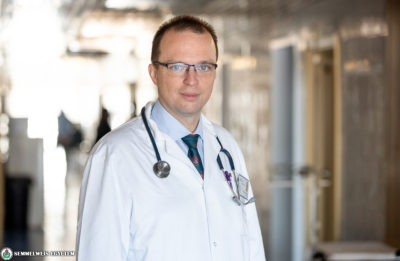 Research related to the biomarkers, the clinical features, and the pathogenetic background of difficult-to-treat rheumatoid arthritis is also an important part of the scientific work done by the Department of Rheumatology and Clinical Immunology. In addition to the diverse research involving other inflammatory and immunological diseases, the department aims at putting equal emphasis on the discipline in undergraduate and graduate education. Practice- and patient-oriented education coordinated by the department takes place in three locations: the rheumatology and immunology units of the Department of Rheumatology and Clinical Immunology headed by Dr. György Nagy at the Buda Irgalmasrend Hospital; at the Department of Internal Medicine and Hematology of Semmelweis University and at the National Institute of Rheumatology and Physiotherapy.
Research related to the biomarkers, the clinical features, and the pathogenetic background of difficult-to-treat rheumatoid arthritis is also an important part of the scientific work done by the Department of Rheumatology and Clinical Immunology. In addition to the diverse research involving other inflammatory and immunological diseases, the department aims at putting equal emphasis on the discipline in undergraduate and graduate education. Practice- and patient-oriented education coordinated by the department takes place in three locations: the rheumatology and immunology units of the Department of Rheumatology and Clinical Immunology headed by Dr. György Nagy at the Buda Irgalmasrend Hospital; at the Department of Internal Medicine and Hematology of Semmelweis University and at the National Institute of Rheumatology and Physiotherapy.
“Rheumatology has developed a great deal in the last two decades, with autoimmune and inflammatory diseases coming to the forefront, which we seek to include in our educational activities as well.”, the head of the department emphasized.
Part of the translational research led by the department head is implemented in cooperation with Dr. Edit Buzás, head of the Institute of Genetics, Cell- and Immunobiology. As Dr. György Nagy emphasized, he started his research activities at this institute twenty years ago, and the cooperation has been continuous ever since. The department conducts intensive translational and clinical research collaborations at the Heart and Vascular Center with the research group led by Dr. Béla Merkely, rector, including one on the cardiovascular risks of RA patients. Another branch of scientific work related to basic research is implemented in cooperation with the Department of Physiology, with Dr. Attila Mócsai, university professor and Dr. Tamás Németh, assistant professor.
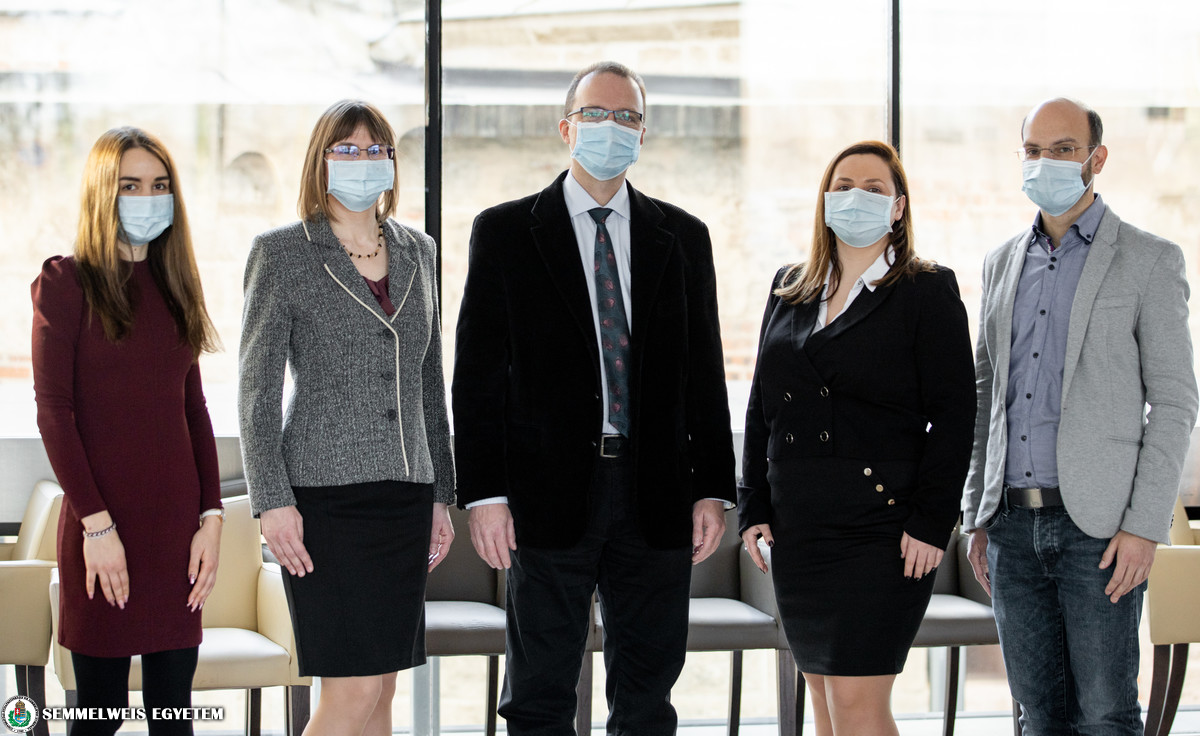 The department, which was established on 1 October, 2020, currently has five staff members, including (from left to right in the photo) Emese Balogh, department administrator, Dr. Judit Majnik, assistant professor, Dr. György Nagy, head of department, Dr. Kinga Viktória Kőhalmi, specialist candidate, and Dr. Tamás Németh, assistant professor.
The department, which was established on 1 October, 2020, currently has five staff members, including (from left to right in the photo) Emese Balogh, department administrator, Dr. Judit Majnik, assistant professor, Dr. György Nagy, head of department, Dr. Kinga Viktória Kőhalmi, specialist candidate, and Dr. Tamás Németh, assistant professor.
“With the establishment of the department, our goal is to further enhance our scientific activities by developing domestic and international collaborations”, Dr. György Nagy highlighted.
Pálma Dobozi
Photo: Attila Kovács – Semmelweis University
Translation: Katalin Illés-Romhányi
